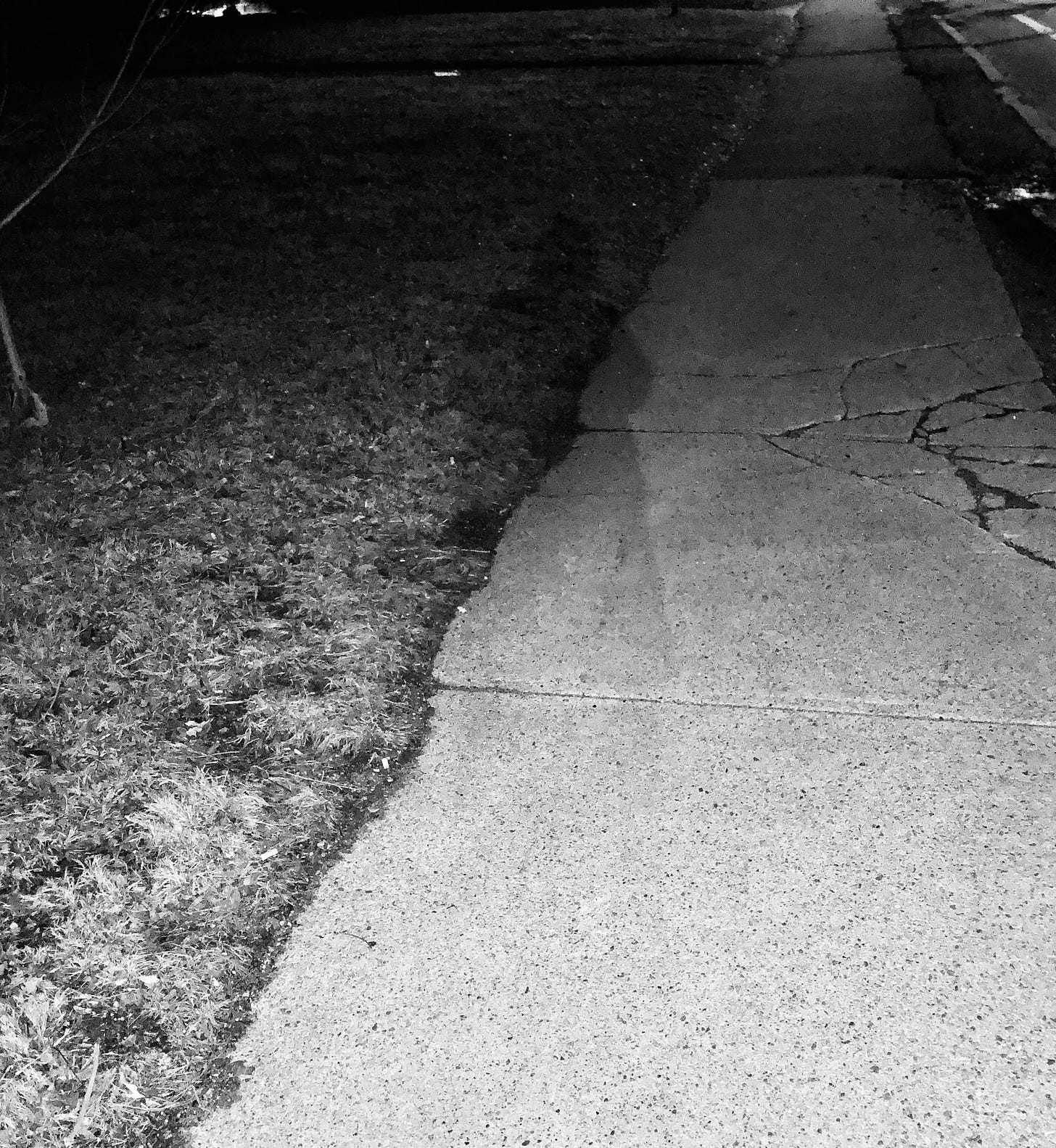Something isn’t right in the world. I have felt the specter of dread all week, unable to find any equilibrium. How do I strike the right balance, exactly? Listen to the news, prepare, panic, don’t panic, shut off the news, distract, focus, don’t focus, daydream, escape?
“You’ve got to be kidding,” I say out loud to no one in the front seat of the car. It’s 10pm on a Thursday night and I’m alone in a dark parking lot as the commuter train departs from the station. This morning, I lingered with time to spare, drinking my coffee and listening to NPR on the radio. Now, I reach out to turn the key still dangling in the ignition where I left it all day. Couple of clicks. Battery is dead. My spouse Janyce is home in bed with the dog, her cellphone tucked away in the bag she left against the closet door in the kitchen. “I plan to go home, take care of the wee, and watch a show before falling asleep,” she texted me earlier in the day. “Have fun with the girls tonight.”
I slip both straps of my backpack around my shoulders and start to walk the mile of dark sidewalks through the town. Earlier this week, I heeded Janyce’s advice to practice self-care and slipped under the heated blanket on the massage table. For the sake of making small talk, I mentioned my distress over the recent spate of virus-related news articles to the therapist who was adjusting the bolster under my knees. “Oh, I don’t worry about things like that,” she said, while she placed a lavender scented cloth over my eyes and turned down the lights. “We all just need to pray, what else can we do?” I decided not to talk and closed my eyes.
A couple of years ago, I read a haunting book that had me hooked from the very first pages. I’m not a fan of dystopian novels usually, and I was surprised to find myself reading about a flu pandemic that wipes out 99% of humanity. These days, I can’t help but think about this book again for obvious reasons. Station Eleven doesn’t fit the typical “end-of-the-world” genre. It opens with a moving description of a Shakespearian actor who dies onstage during a performance of King Lear, succumbing to the flu that is rapidly traveling throughout the entire planet. As riveting as these opening pages are, the novel, surprisingly, is not the bleak and depressing story you might think. On the contrary, much of the strength of the book comes from the author’s interweaving of past and present, of her lyrical description of memory and loss, and the way she depicts the value of friendship.
The temperature has dropped outside and the wind is an arctic blast making my ears sting and my eyes water. I pick up my walking pace and notice my shadow as I pass by each streetlamp. It starts as a small compressed crouch creeping up behind me, then growing longer by my side, keeping pace. Soon, the figure on the ground is looming fully in front of me, taking the lead, marching in step to the rhythm of my footsteps hitting the sidewalk.

Something isn’t right in the world. I have felt the specter of dread all week, unable to find any equilibrium. How do I strike the right balance, exactly? Listen to the news, prepare, panic, don’t panic, shut off the news, distract, focus, don’t focus, daydream, escape?
Every few days, I stop whatever I’m doing midstream and visit with my new friend Carl Goldman. He’s not a real friend because I have never met him, but I stumbled across his blog one day when I was poring over yet another news article that was big on scare and short on answers. Carl is a Californian who has Covid-19. He caught it on the Diamond Princess sometime during the celebratory 17-day cruise to Japan he took with his wife and two of their friends, and he didn’t start feeling sick until he spiked a fever on the cargo plane sent to bring him and the other Americans back home. Little did he know that he would seemingly never get to the end of his dream vacation. But he’s fine, actually. He’s getting better and writing to an invisible public every few days, using his lighthearted humor to keep the rest of us readers and strangers informed about what it feels like, day after day, in quarantine, with your only visitor a health care worker in a hazmat suit.
“I had to walk home,” I say to Janyce once I’m back in the house, pushing the dog aside and sliding under the covers. “I drained the car battery by mistake.”
“Pauvre no,” she says softly without opening her eyes. Even in the dark of our bedroom I can tell she isn’t fully awake.
“I’m working from home tomorrow, but we’ll figure it out,” she says. I decide not to talk again until the morning, grateful to be home and warm and safe.
It’s Friday morning and I’m riding the #1 bus on the last leg of my long commute into the city. I log in to check my work email before the bus stops at the entrance to the office. One of my colleagues has sent me a google doc so I can add my edits to the blog post he’s working on. “Wait, what am I missing?” I text him, confused. “Did something happen?” Before I get his answer, I’m off the bus and rounding the corner to the main office. Something has happened. Something is most definitely not okay. I see the faces of my colleagues through the glass of the office door, a crowd of people milling inside, I see their faces, they see my face, and somebody pulls me aside to fill me in.



